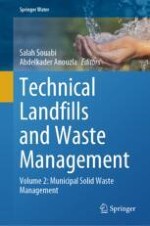2024 | OriginalPaper | Buchkapitel
10. Reducing and Managing Food Waste: Challenges and Way Forward
verfasst von : Md. Shakil Ar Salan, Md. Imran Hossain
Erschienen in: Technical Landfills and Waste Management
Verlag: Springer Nature Switzerland
Aktivieren Sie unsere intelligente Suche, um passende Fachinhalte oder Patente zu finden.
Wählen Sie Textabschnitte aus um mit Künstlicher Intelligenz passenden Patente zu finden. powered by
Markieren Sie Textabschnitte, um KI-gestützt weitere passende Inhalte zu finden. powered by
